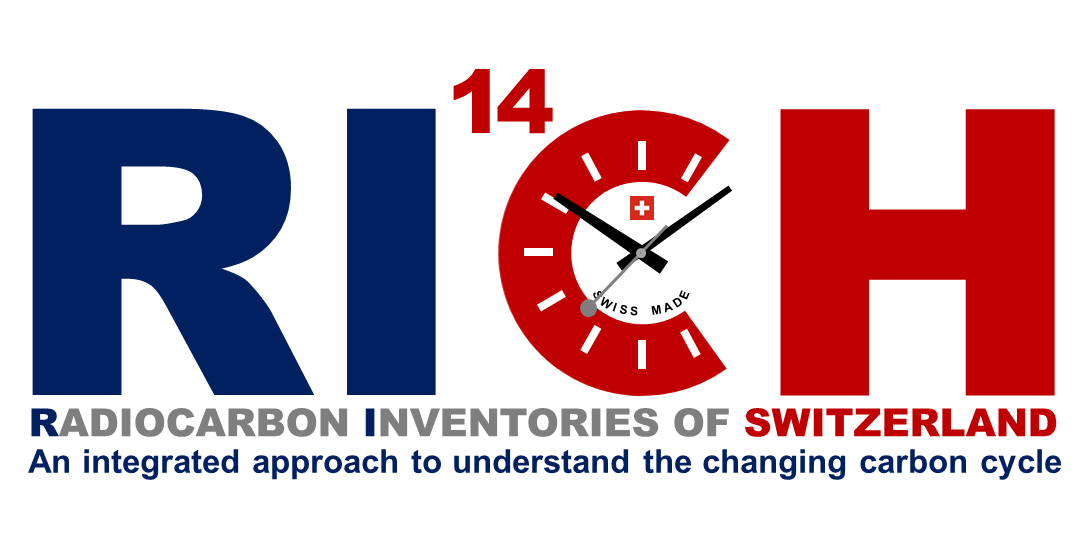RICH: Radiocarbon Inventories of Switzerland

Anthropogenically-induced climate change is directly linked with perturbations to the global carbon cycle brought on by emissions of greenhouse gases, particularly carbon dioxide and methane, resulting from exploitation of fossil fuels and land-use change. Our missing knowledge of turnover and exchange of carbon between the atmosphere and terrestrial and aquatic ecosystems constitutes a key uncertainty in understanding the global carbon cycle and its feedback on climatic change. In particular, there is a need to better understand the transfer between slow-cycling carbon pools (i.e., fossil fuels and mineral soils) and the atmosphere and other fast-cycling pools. Radiocarbon, the long-lived radioactive isotope of carbon, is unique in its potential to quantify the magnitude and pace of carbon exchange among carbon reservoirs.
Summary
The objective of the Radiocarbon Inventories of Switzerland (RICH) Sinergia project is to undertake a coordinated radiocarbon measurement and modeling program encompassing the atmosphere (carbon dioxide and methane), the terrestrial biosphere and soils, as well as the aquatic continuum (rivers and lakes) across the five ecoregions of Switzerland. We will use this information to examine carbon exchange between these different pools on regional and national scales, to assess carbon cycle changes during the industrial era, and to provide a benchmark against which to gauge future changes. The RICH Sinergia team members will each focus on different themes, including present and past atmospheric radiocarbon inventories of carbon dioxide and methane, stocks and dynamics of radiocarbon held in Swiss soils, and radiocarbon inventories of dissolved and particulate carbon in major rivers and lakes draining different ecoregions of Switzerland. The wealth of new radiocarbon data derived from these sub-projects will be used in carbon cycle models that depict pathways and dynamics of carbon exchange within terrestrial-aquatic networks and quantify sources of greenhouse gases.
Switzerland is already experiencing the effects of climate change as well as from direct anthropogenic perturbations, which manifest themselves in different ways across its five ecoregions. This project will help to identify carbon pools that are most vulnerable to rapid change. By interfacing with national monitoring programs and engaging with policy makers, this information may, in turn, be used to develop strategies for assessment and mitigation of the effects of climate change.
Contact
Geologisches Institut
Sonneggstrasse 5
8092
Zürich
Switzerland